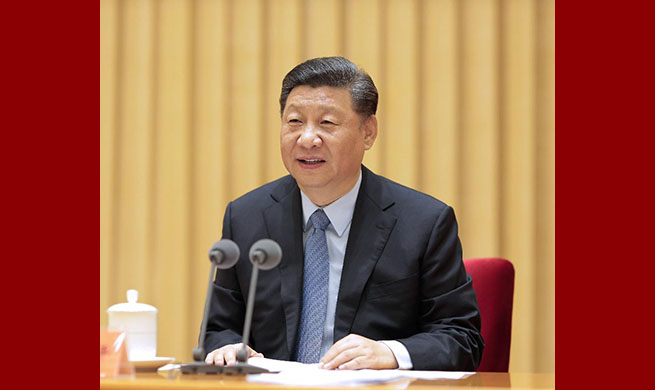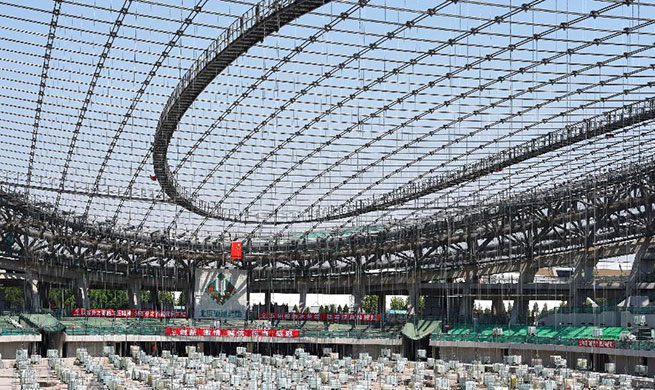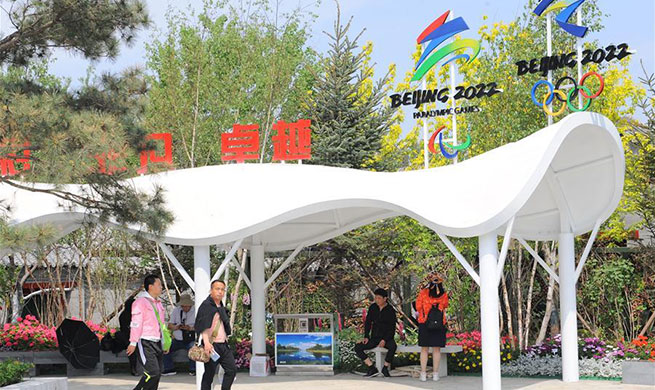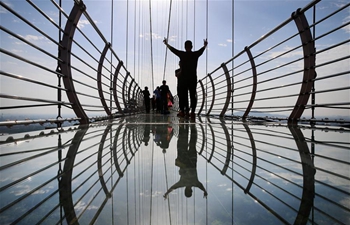SHANGHAI, May 10 (Xinhua) -- After China and Italy signed a memorandum of understanding on the Belt and Road Initiative in March, Italians living or doing business in China expect a better understanding between people of the two nations and more business opportunities.
"MODERN MARCO POLO"
"There is an idiom that all roads lead to Rome, while today we can say that the new Silk Road leads to China," Marco Mazzola, an Italian in his twenties, said in Mandarin in a university classroom in Shanghai.
Sharing his first name with Marco Polo, the Italian explorer believed to have journeyed across China in the 13th century, Mazzola was excited about his country joining the China-proposed Belt and Road Initiative, often described by foreigners as building a new Silk Road.
"The Belt and Road is not only about trade but also about cultural exchange, which helps people from different countries and regions better understand each other," he said.
Mazzola said he wants to be a "modern Marco Polo" -- to publish a book about what he saw and felt in China and to be a "cultural ambassador" between the two peoples.
Back in 2012, the then chef came to China for a job opportunity and his interest in Chinese culture and history. In the following years, he traveled to more than 20 cities across the country.
"As the Chinese saying goes, (one should) read 10,000 books and travel 10,000 miles. The more cities I visit, the more I learn about the diversity of the world," Mazzola said.
Usually starting a day with a typical Chinese breakfast -- deep-fried dough sticks and soy milk -- the Italian is now in his third year learning Chinese language and literature in Shanghai Jiao Tong University, one of the top universities in China.
Able to speak Mandarin almost fluently, Mazzola likes to read ancient Chinese poetry and has learned to cook Chinese cuisine and play the Chinese musical instrument Hulusi, or cucurbit flute.
FLORENTIA VILLAGES IN CHINA
Next to Shanghai's Pudong International Airport lies a Florentia Village -- an outlet mall built with Italian architecture.
Featuring international luxury brands at attractive prices, it is one of the six Florentia Village opened in China by Italian real estate group RDM.
Samuele Rossi, the owner of a restaurant in the Shanghai Florentia Village, said he would soon open two more restaurants in southern Chinese cities.
When asked about the business environment in China, Rossi said he felt it has become more convenient for investors, "especially in the past five years." "Follow the rules and it can be very smooth," he said.
The Italian went to Beijing to work for a luxury hotel in 2003 and jointly opened his first Italian cuisine restaurant in the Florentia Village in the suburbs of northern China's Tianjin in 2011.
Residing in Beijing, Rossi now travels often by air and high-speed train to manage his restaurants and cafes in different Chinese cities.
Rossi said he finds many similarities between Italians and Chinese. "We both attach great importance to family. We both like food, and cuisine differs from region to region in our two countries," he said.
The RDM group is also expanding its business in China. Maurizio Lupi, RDM vice president and Florentia Village managing director, told Xinhua in a phone interview that construction is soon to start on a new Florentia Village in Chongqing, a metropolis in southwest China.
Lupi believes there will be more cooperation between "our two countries -- the beginning and end of the (ancient) Silk Road."
"It is important for Italy to cooperate with China, especially in the new Silk Road initiative, and have more opportunities with China," he said.













